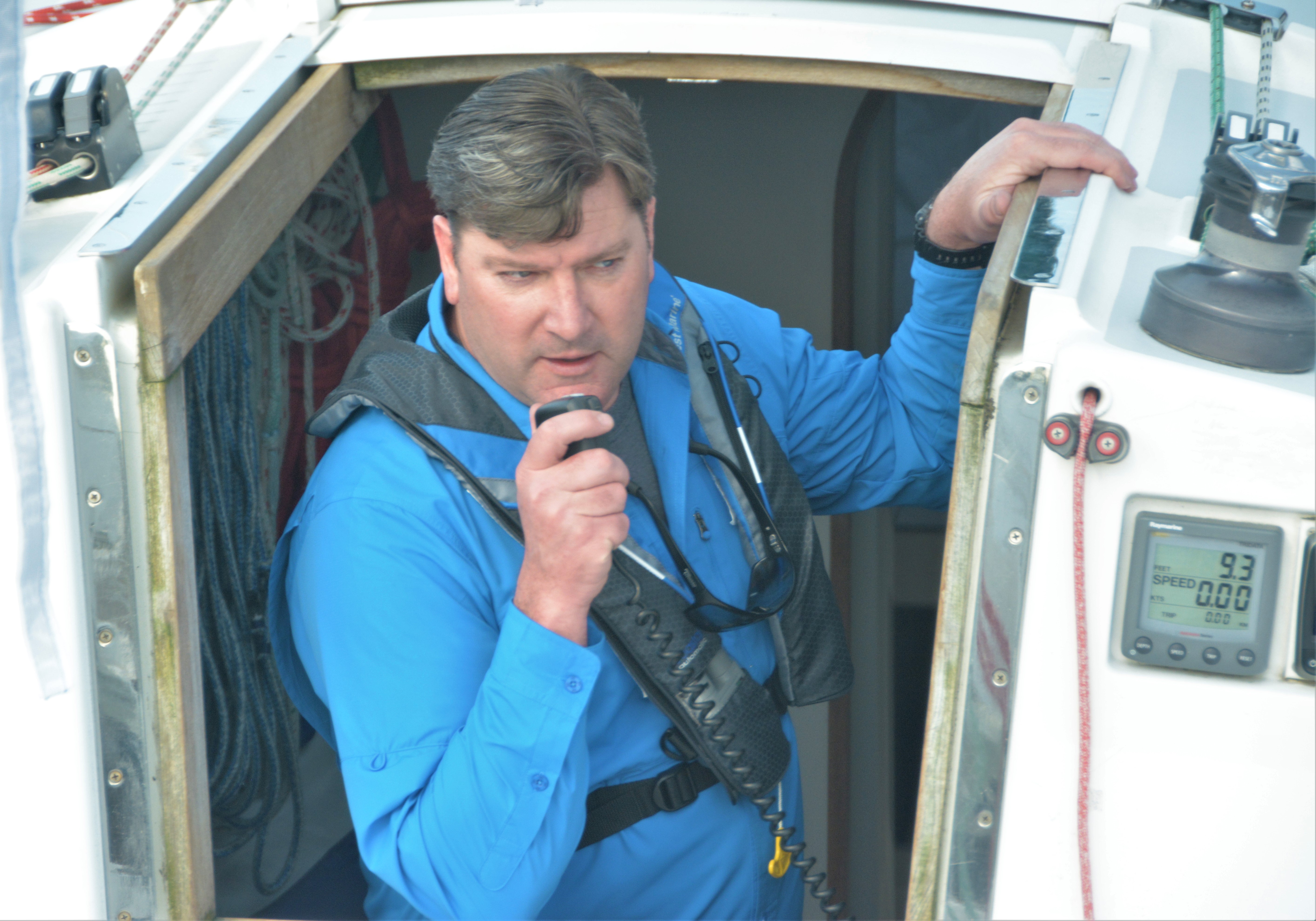 News Room
News Room
March 28, 2023
NEWS from BoatUS
Boat Owners Association of The United States
5323 Port Royal Rd, Springfield, VA 22151
BoatUS News Room at
FOR IMMEDIATE RELEASE
Press Contact: Alisha Sheth, Senior PR Manager, 703-245-2300, alisha@boatus.com
BoatUS Foundation Reveals Top 3 Mistakes Boaters Make When Using VHF Radios
Help ensure you’re heard every time

Speak slowly and clearly when communicating on the VHF radio.
Download hi-res photo
Download hi-res photo
ANNAPOLIS, Md., March 28, 2023 – For most recreational boaters, VHF radios are a better lifesaving tool than the omnipresent cellphone, even as more boaters use cellphones for emergency on-water communications. Why? The VHF radio remains the only tool at the boater’s disposal that can summon those potential rescuers on the water nearest you – sometimes with the press of one simple red button – saving critical rescue time.
To help boaters get the most out of their VHF radio, the BoatUS Foundation for Boating Safety and Clean Water reveals the top three mistakes boaters tend to make when using VHF radios.
1. Failure to get an MMSI (and program it in). A Maritime Mobile Service Identity (MMSI) number brings your VHF into the modern age of Digital Selective Calling (DSC VHF), offering the ability make direct calls to other DSC-VHF radios. However, what an MMSI-equipped DSC-VHF radio does better than any cellphone is it allows a simple, one-button mayday distress, giving everyone aboard the ability to summon emergency help to your precise location on the water. This unique nine-digit MMSI number is issued for your vessel and must be programmed into your radio. Without it, you lose your DSC-VHF’s biggest lifesaving advantage. You can request an MMSI for $25 at BoatUS.com/MMSI, or join BoatUS and get it for free.
2. Forgetting to speak slowly and clearly. Life on the water isn’t always peaceful. We may have to deal with a tricky situation, which causes stress that may affect the way we speak. If you have pick up the VHF microphone to summon emergency help, remember to slow down, speak slowly to help ensure your words are understood the first time. It can save rescuers time.
3. Talking on VHF radio Ch. 16. Think of VHF channel 16 as a “street corner” where you go to meet up with friends before heading to an activity, a night out, or fishing. You “connect” there, and then move on. More importantly, Ch. 16 is the place to summon emergency help, because U.S. Coast Guard watchstanders are also on the “street corner.” However, because only one person may transmit on Ch. 16 at a time, routine communications with other vessels should move off the “street corner” as quickly as possible. To do this, simply hail the vessel you wish to communicate with, and once they respond to the affirmative, bring the conversation to working channels 68, 69, 71, 72 or 78A. Write these channels down on your radio with a sharpie so you’ll remember. This keeps channel 16 clear of non-emergency chatter. The U.S. Coast Guard asks that VHF radio checks also take place on working channels.
Want to improve your VHF skills? The BoatUS Foundation offers an online learning course, All About Marine Radio, at BoatUS.org.
###
Suggested social media post:
BoatUS Foundation reveals the top 3 mistakes boaters make when using VHF radios. Are you guilty of making one (or more!) of them? https://bit.ly/3TITIoP @BoatUSFoundation #vhf #vhfradio #boatingsafety
About the BoatUS Foundation for Boating Safety and Clean Water:
The BoatUS Foundation for Boating Safety and Clean Water is a national leader promoting safe, clean and responsible boating. Funded primarily by donations from the more than 800,000 members of Boat Owners Association of The United States (BoatUS), the nonprofit provides innovative educational outreach directly to boaters and anglers with the aim of reducing accidents and fatalities, increasing stewardship of America's waterways and keeping boating safe for all. A range of safe and clean boating courses – including the nation's largest free online boating safety course – can be found at BoatUS.org/Courses.
